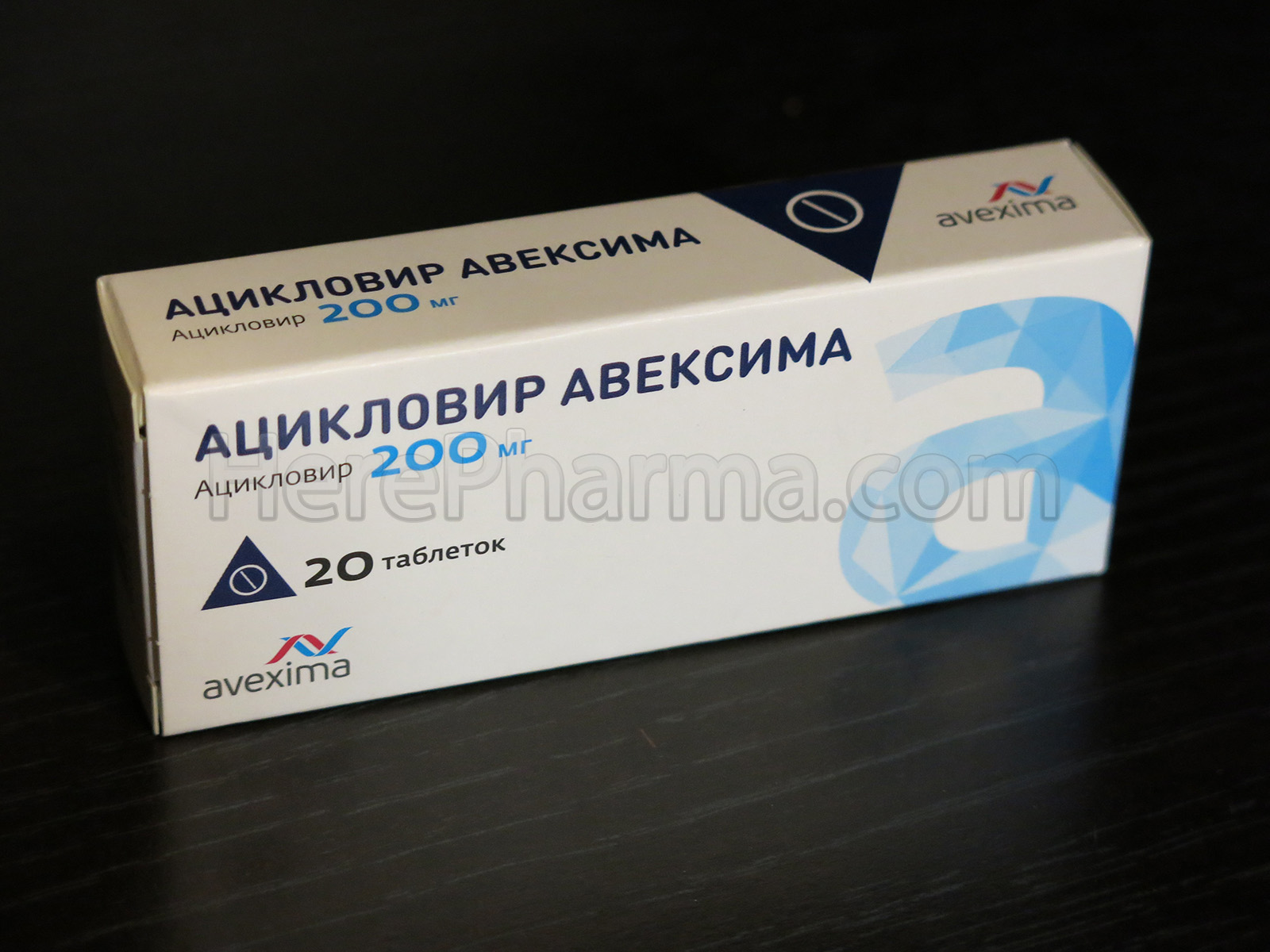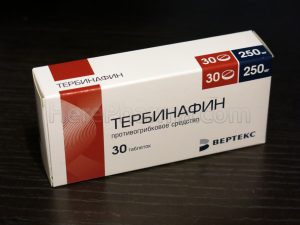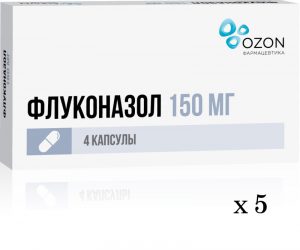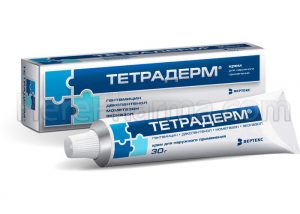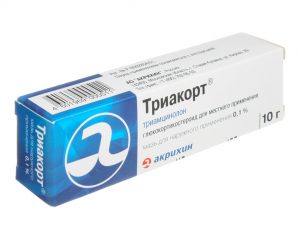$20.00
Description
Aciclovir 200mg – 20tablets
Pharmacological action
Antiviral agent, a synthetic analog of purine nucleoside.
It has the ability to inhibit in vitro and in vivo herpes simplex virus types 1 and 2, Varicella zoster virus, Epstein-Barr virus, cytomegalovirus. In cell culture, acyclovir has the most pronounced antiviral activity against the Herpes simplex virus type 1, followed in descending order of activity: Herpes virus type 2, Varicella zoster virus, Epstein-Barr virus and cytomegalovirus. The inhibitory effect of acyclovir on these viruses is characterized by high selectivity.
Acyclovir is not a substrate for the enzyme thymidine kinase of uninfected cells, so acyclovir is low toxic to mammalian cells. High selectivity and low toxicity to humans due to the lack of the necessary enzyme for the formation of acyclovir triphosphate in intact cells of the macroorganism.
Thymidine kinase of cells infected with Herpes simplex viruses types 1 and 2, Varicella zoster virus, Epstein-Barr virus or cytomegalovirus, converts acyclovir into acyclovir monophosphate — an analogue of nucleoside, which is then sequentially converted into diphosphate and triphosphate over the action of cellular enzymes. Acyclovir triphosphate integrates into the viral DNA chain and blocks its synthesis through competitive inhibition of viral DNA polymerase. Thus, a “defective” viral DNA is formed, which leads to the suppression of replication of new generations of viruses.
In the treatment of herpes prevents the formation of new elements of the rash, reduces the likelihood of skin dissemination and visceral complications, accelerates the formation of crusts, reduces pain in the acute phase of herpes zoster.
In patients with severe immunodeficiency, prolonged or repeated courses of acyclovir therapy can lead to the appearance of resistant strains, so further treatment with acyclovir may be ineffective. The majority of isolated strains with reduced sensitivity to acyclovir had relatively low content of viral thymidine kinase, violation of the structure of viral thymidine kinase or DNA polymerase. The impact of ecklonia strains of Herpes simplex virus in vitro may lead to the formation of less sensitive strains. Not a correlation between the sensitivity of strains of Herpes simplex virus to apislavia in vitro and clinical efficacy of the drug.
Pharmacokinetics
When ingestion bioavailability is 15-30%. It is widely distributed in tissues and liquid media of the body. The plasma protein binding is 9 to 33%. Metabolized in the liver. T1/2 the ingestion – 3.3 h, at/in the introduction – 2.5 hours return with urine in small quantities – with feces.
Indications
For oral administration
Treatment of skin and mucous membrane infections caused by Herpes simplex virus types 1 and 2, including primary and recurrent genital herpes; prevention of recurrence of infections caused by Herpes simplex virus types 1 and 2 in patients with normal immune status; prevention of infections caused by Herpes simplex virus types 1 and 2 in patients with immunodeficiency; treatment of primary and recurrent infections caused by Varicella zoster virus – chickenpox and herpes zoster (early treatment of herpes zoster has analgesic effect and may reduce the incidence of postherpetic neuralgia).
Dosage regimen
For oral administration
The drug can be taken with food, because eating does not cause significant violations of the absorption of acyclovir.
Adults
Treatment of infections caused by Herpes simplex virus types 1 and 2
The recommended dose leaves 200 mg 5 times / day (every 4 hours, except for the period of night sleep). As a rule, the course of treatment is 5 days, but can be extended for severe primary infections.
In the case of severe immunodeficiency (for example, after bone marrow transplantation) or in violation of absorption from the intestine, the dose of acyclovir can be increased to 400 mg.alternatively, the possibility of using acyclovir in the form of I/V infusions can be considered.
Treatment should begin as soon as possible after the onset of infection; with relapses, acyclovir is recommended to be prescribed already in the prodromal period or with the appearance of the first elements of the rash.
Prevention of recurrence of infections caused by Herpes simplex virus types 1 and 2 in patients with normal immune status
The recommended dose is 200 mg 4 times / day (every 6 hours); can be used for 400 mg 2 times/day (every 12 hours).
In some cases, lower doses of acyclovir are effective-200 mg 3 times/day (every 8 hours) or 200 mg 2 times / day (every 12 hours).
In some patients, an exacerbation of infection may occur when taking a total daily dose of 800 mg.
Treatment with acyclovir should be periodically interrupted for 6-12 months to identify possible changes in the course of the disease.
Prevention of infections caused by Herpes simplex virus types 1 and 2 in patients with immunodeficiency
The recommended dose of acyclovir is 200 mg 4 times / day (every 6 hours).
In the case of severe immunodeficiency (for example, after bone marrow transplantation) or in violation of absorption from the intestine, the dose of acyclovir can be increased to 400 mg 4 times/day. Alternatively, the possibility of using acyclovir in the form of I/V infusions may be considered.
The duration of preventive therapy is determined by the duration of the period when there is
risk of infection.
Treatment of primary and recurrent infections caused by Varicella zosler virus – chickenpox and herpes zoster
The recommended acyclovir is 800 mg 5 times / day (every 4 hours, except for the period of night sleep). The course of treatment is 7 days.
In the case of severe immunodeficiency (for example, after bone marrow transplantation) or in violation of absorption from the intestine, it is necessary to consider the possibility of using acyclovir in the form of b/infusion.
The drug should be prescribed as soon as possible after the onset of infection, because in this case, treatment is more effective.
Children and age 3 years and older
Treatment of infections caused by Herpes simplex virus types 1 and 2; prevention of infections caused by Herpes simplex virus types 1 and 2 in patients with immunodeficiency
Acyclovir is used in the same doses as for adults.
Treatment of chickenpox
Children aged 6 years and older-800 mg 4 times/day; aged 3 to 6 years – 400 mg 4 times / day per day. More accurately, the dose can be determined at the rate of 20 mg/kg body weight (but not more than 800 mg) 4 times/day. The course of treatment is 5 days.
Prevention of recurrence of infections caused by Herpes simplex virus types 1 and 2; treatment of herpes zoster
Data on the dosage regimen are not available.
Elderly patients
The dose should be adjusted depending on the degree of renal failure.
It is necessary to ensure the maintenance of an adequate water balance.
Patients with impaired renal function
Acyclovir should be administered with caution. It is necessary to ensure the maintenance of an adequate water balance.
In patients with renal insufficiency, ingestion of acyclovir in the recommended doses for the treatment and prevention of infections caused by Herpes simplex virus types 1 and 2 does not lead to the accumulation of the active substance to concentrations exceeding the established safe level. However, in patients with CC <10 ml/min, the dose of acyclovir is recommended to be reduced to 200 mg 2 times/day (every 12 hours).
In the treatment of chickenpox and herpes zoster recommended doses of acyclovir are:
– CC < 10 ml / min-800 mg 2 times / day (every 12 h);
– QC 10-25 ml / min-800 mg 3 times / day (every 8 hours).
